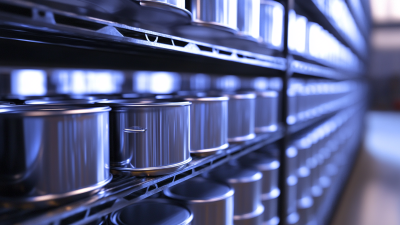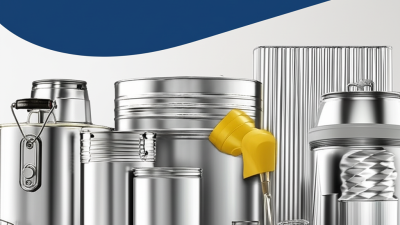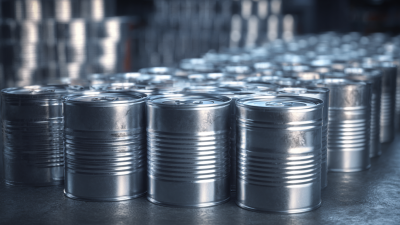 +8618680445103
+8618680445103
Free Standard Samples can be provided for you to check the quality.
Leave Your Message
In an era where sustainability is at the forefront of global manufacturing practices, the production of metal cans presents a unique opportunity for innovation and environmental stewardship. Metal cans, widely recognized for their recyclability and durability, play a crucial role in various industries, from food and beverage to cosmetics.
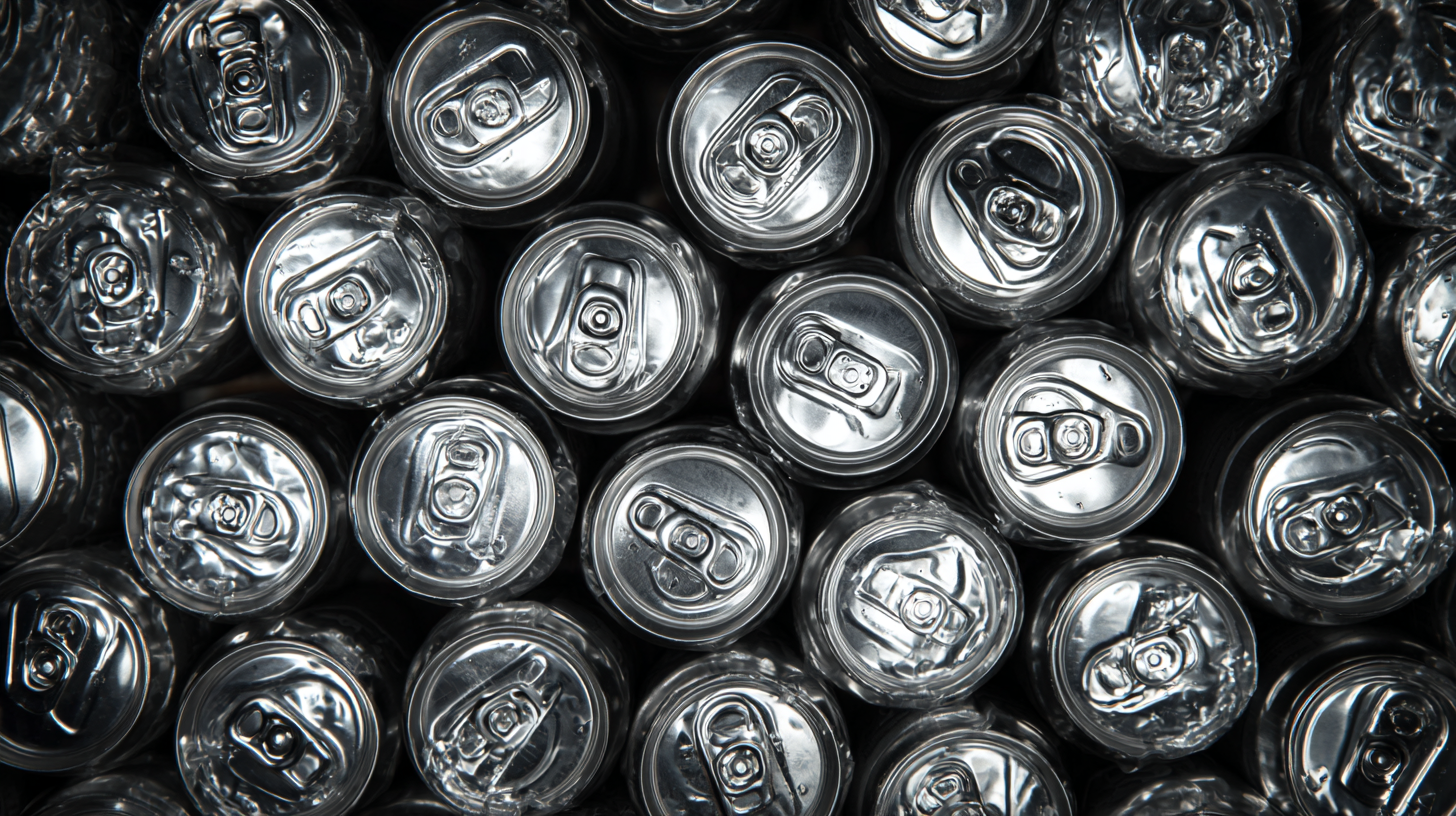
This blog will explore innovative solutions aimed at enhancing the sustainability of metal can production processes. By leveraging advancements in technology, material science, and design, manufacturers can significantly reduce their carbon footprint while maintaining the functional and aesthetic qualities that consumers demand.
Join us as we delve into the methods and strategies that are reshaping the landscape of metal cans production, driving us toward a more sustainable future.
The global shift towards sustainability is profoundly influencing the metal can production industry, particularly in its material choices. Innovative materials, such as biodegradable polymers and recycled metals, are becoming integral to the production process. These eco-friendly alternatives not only minimize environmental impact but also cater to the increasing consumer demand for responsible packaging. As the alcohol packaging market is expected to reach $701.9 billion by 2024, manufacturers are focusing on developing sustainable practices that align with the global trend towards eco-conscious consumption.
In addition, the volatility of raw material prices poses significant challenges for manufacturers in maintaining production costs and profit margins. The growing emphasis on cost-effective, environmentally friendly materials encourages manufacturers to explore new resources and innovative technologies that can withstand price fluctuations. The canned food and beverage market alone is projected to see a significant CAGR of over 7.3% from 2025 to 2034. This upward trajectory signals a strong market preference for sustainable practices, pushing companies to invest in R&D for eco-friendly metal can solutions that not only meet safety and performance standards but also contribute to a circular economy.
This chart illustrates the percentage of different innovative materials used in the eco-friendly production of metal cans over the years. The data shows an increasing trend towards sustainable practices in the metal can manufacturing industry.
In the realm of sustainable packaging solutions, the metal can industry is undergoing a remarkable transformation, driven by technological advances in manufacturing processes. Recent reports indicate that the global metal can market is projected to reach $30 billion by 2028, growing at a CAGR of 4.5%. This growth is fueled by innovations that enhance production efficiency and reduce environmental impact. For instance, the integration of automation and robotics in manufacturing lines has been shown to decrease energy consumption by up to 20%, while improving output quality.
Tip: Implementing energy-efficient technologies not only cuts costs but also aligns production processes with sustainability goals. Companies can benefit from investing in machinery that utilizes less energy and produces fewer emissions, thus contributing to a greener planet.
Additionally, advancements in coatings and materials are minimizing the use of harmful chemicals, making metal cans even more environmentally friendly. A study from the Aluminium Association highlights that recycling rates for aluminum cans exceed 70%, further emphasizing the role of metal packaging in achieving circular economy objectives. As industry players adopt improved manufacturing techniques, they not only comply with stricter regulations but also meet the growing consumer demand for sustainable packaging options.
Tip: Keep an eye on emerging technologies, like digital printing and IoT connectivity, which can enhance product traceability and customization, providing a competitive edge in the eco-conscious market.
The lifecycle management of metal cans is crucial in fostering sustainability within the packaging industry. One of the primary strategies for waste reduction lies in optimizing the production process itself. By adopting advanced manufacturing technologies, such as metal forming techniques that minimize scrap generation, companies can significantly reduce material waste. Additionally, innovations in recycling processes allow for the recovery of post-consumer cans, transforming them back into high-quality raw materials suitable for new production cycles. This closed-loop system not only conserves natural resources but also cuts down energy consumption and emissions associated with metal production.
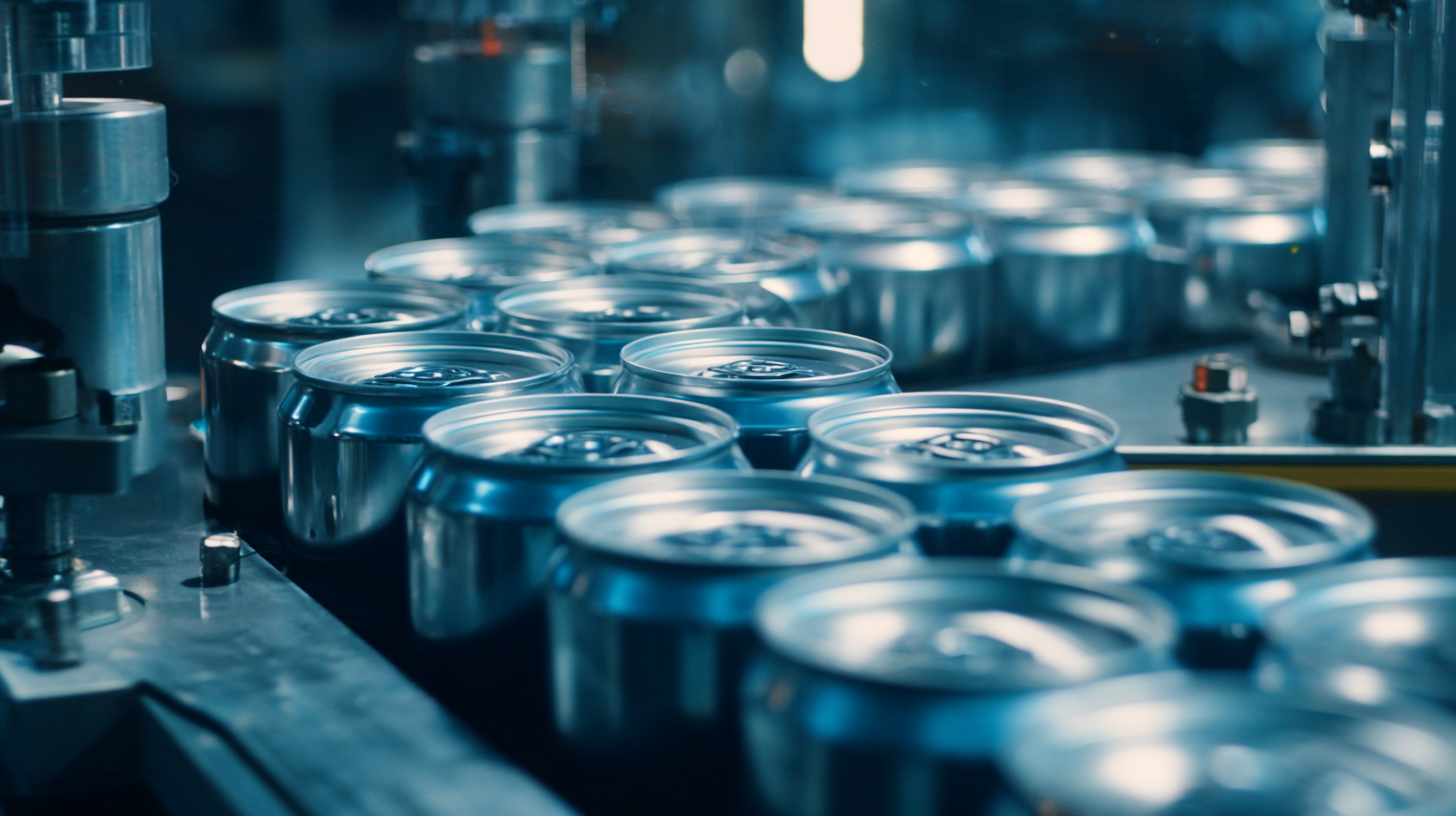
Another effective strategy involves enhancing the design of metal cans to ensure easier recycling and promoting the use of recyclable materials. Designers are increasingly focusing on creating cans that are easily separable, reducing contamination during the recycling process. By collaborating with suppliers and stakeholders throughout the supply chain, manufacturers can implement a more sustainable approach, ensuring that can designs prioritize recyclability and minimize environmental impact. This holistic view of the metal can lifecycle not only supports waste reduction but also aligns with global sustainability goals, encouraging more responsible consumption patterns among consumers while driving the industry toward a greener future.
The metal can industry is embracing supply chain innovations to achieve sustainability, which has become a critical focus in recent years. According to a report by the Aluminium Association, approximately 75% of aluminum cans are recycled, showcasing the material's inherent sustainability. However, enhancing the supply chain processes is essential for promoting both environmental stewardship and operational efficiency. Innovations such as blockchain technology are improving traceability from production to distribution, allowing manufacturers to optimize their resources and reduce waste significantly.
Tip: Implementing a closed-loop supply chain model can greatly reduce the carbon footprint of metal can production. Engaging local suppliers can also minimize transportation emissions, contributing to a more sustainable production line.
Additionally, leveraging digital platforms for inventory management can lead to more accurate forecasting and reduced overproduction. A study by the World Economic Forum indicated that companies adopting advanced supply chain technologies could reduce their operational costs by up to 30%. By embracing these innovations, the metal can industry can enhance its sustainability efforts while ensuring efficient distribution.
Tip: Encourage collaboration among stakeholders in the supply chain. Building partnerships with logistics providers focused on green practices can further enhance sustainability initiatives and promote eco-friendly distribution methods.
| Dimension | Description | Impact |
|---|---|---|
| Recycled Materials | Utilizing a higher percentage of recycled aluminum in production. | Reduces energy consumption and carbon footprint. |
| Energy Efficiency | Implementation of energy-saving technologies in manufacturing. | Lowers operational costs and greenhouse gas emissions. |
| Logistics Optimization | Streamlining supply chain processes to reduce waste. | Enhances delivery efficiency and reduces transportation emissions. |
| Sustainable Sourcing | Acquiring raw materials from sustainable sources. | Fosters environmental responsibility and community support. |
| Product Design | Developing cans with optimized shapes for material usage. | Minimizes material waste and enhances recycling potential. |
Consumer awareness plays a pivotal role in the push for sustainable metal can production. According to a report by the Beverage Marketing Corporation, over 70% of consumers are now actively seeking environmentally friendly packaging options. This shift reflects a growing recognition of the ecological impact of packaging waste, leading manufacturers to rethink their production processes. With metal cans being among the most recyclable materials, they appeal to environmentally conscious consumers who favor brands that prioritize sustainability.
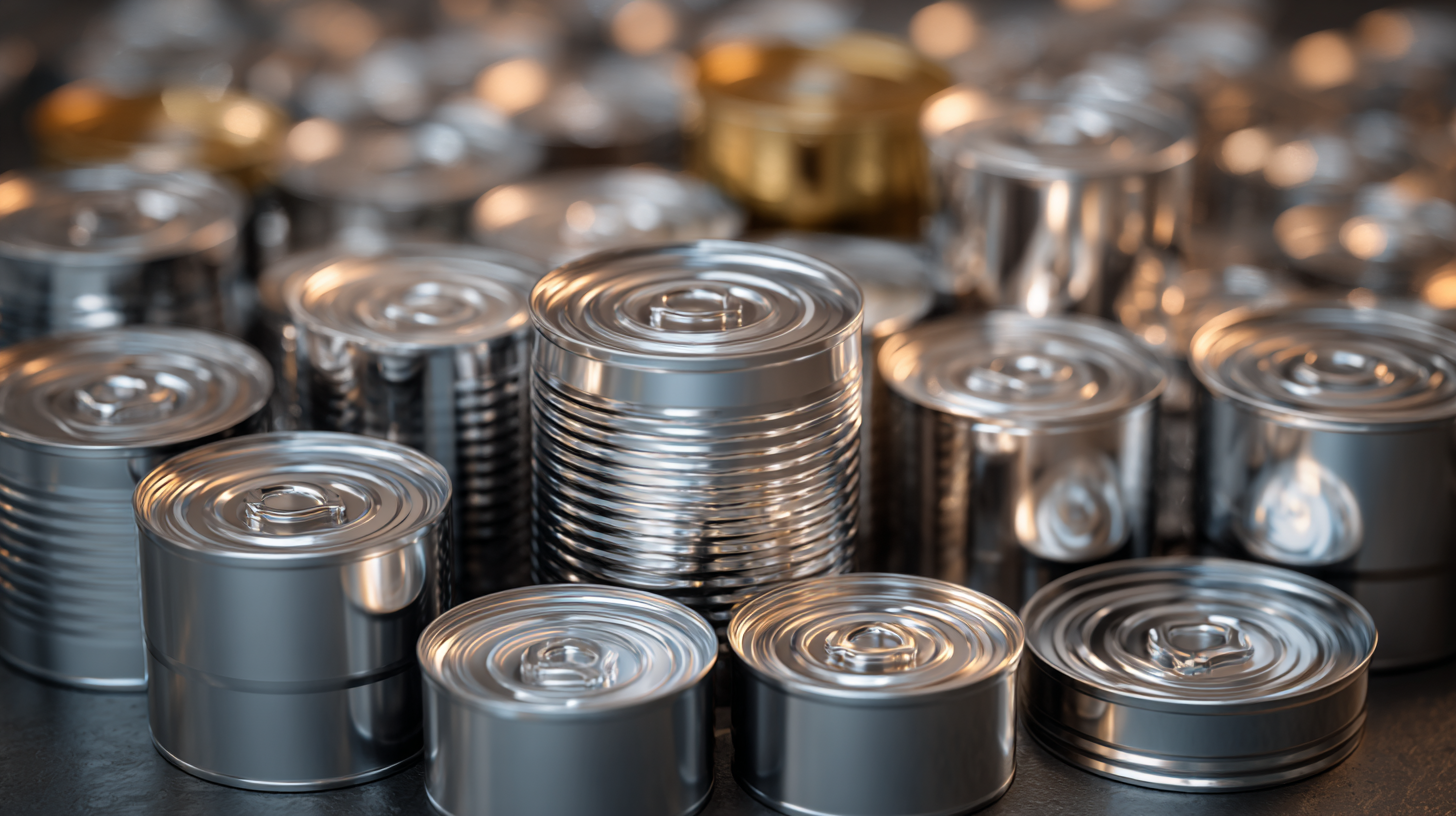
Innovations in metal can production, driven by consumer demands, include advancements in lightweight materials and energy-efficient manufacturing processes. A study by the Aluminum Association highlights that lightweight cans can reduce energy consumption by up to 30% during transportation, resulting in lower carbon footprints. Additionally, the use of recycled aluminum can save up to 95% of the energy required to produce new aluminum. This commitment to sustainability not only meets consumer expectations but also reinforces brand loyalty, as customers increasingly choose to support businesses that align with their environmental values.

